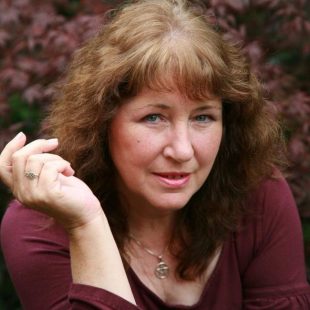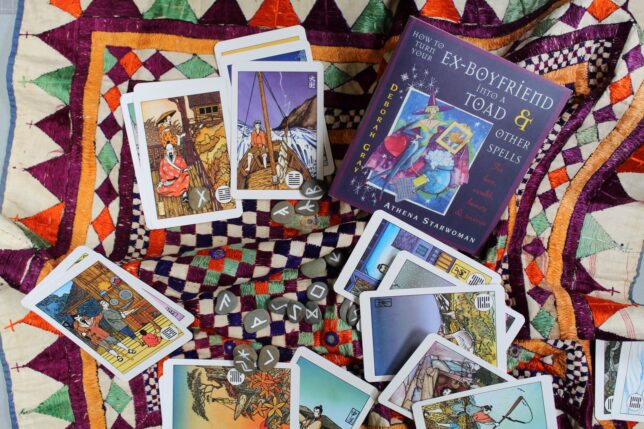Janet Paisley 1948 – 2018

JANET PAISLEY’s early life was not kind to her. She endured her parents’ broken marriage, abuse as a child, rape in her teens and violence as a wife and mother. Experiences which would have broken many resulted in a woman who would not be cowed. Once free of her marriage, Janet harnessed her talents and put them to work supporting her six children. Here was a woman whose demons made her, who took the inequalities of her early years and fought against them, politically and on the page. Janet refused to be brought low, and would not be silenced when she saw injustice. Passionate about the Scots language, she campaigned and was rewarded for increasing its acceptance and use. Her poems, plays and prose surge with honesty and compassion, revealing the truths behind the country she loved.
Janet was born in London to Scottish parents but her father’s drinking and promiscuity resulted in the break-up of the marriage and Janet was moved to Avonbridge, Falkirk, at the age of two. There she grew up with her mum, two sisters, uncle and grandfather. She remembers there being little money and few luxuries; baths once a week, wet beds and a leather belt for beatings – but she also felt loved.
Janet was taught to hunt by her beloved Uncle Andrew, who also introduced her to poetry, but this fresh start in Scotland was marred by her grandfather’s persistent sexual abuse, and that of one of her mother’s boyfriends. Her father’s return a year later seemed to offer a rescue but within a fortnight he was gone. She believed this abandonment coloured her life.
A precociously talented writer, her first poems were dismissed as being too good to have been written by a child. She chose to become a teacher and it was while she was an 18-year-old student that she was raped by a bus conductor. This event saw her life ‘nose-dive’ and her confidence fall; she believed herself worthless. A few years later, Janet thought she had found a protector in Bill Paisley, a handsome, divorced, father-of-two. They married in 1969 when Janet was 21.
Bill was charming but he was also a jealous, violent drinker who attacked both his wife and their children. Janet’s writing stopped when she was first married but, after suffering a life-threatening haemorrhage while giving birth to her son David, she realised she had better start living the life she really wanted – and began to write again. Her first work, a short story, was published by The Sunday Post in 1979 under a pseudonym (Bill didn’t want her bringing his name into disrepute) and Janet realised that if she could make money from her writing Bill would allow her to keep doing it. ‘I only had to publish one story a month, and I could use the other days of (the children’s) afternoon nap time for my own work. And that’s what I did.’
Of her seven sons one, Christopher, was born at 26 weeks. He died the day after his birth, an experience she wrote about in the poem Mayday:
You sailed beyond me bearing only your name.
From your glass shell, a small fist salute,
the final white box your one flag.
All you left, breast full, blood heat, the bluish milk,
fell in the void of your leaving
and destitute, my arms raged.
(Paisley “Mayday,” lines 10-15)
Janet joined the Falkirk’s Writing Circle in 1984 but Bill was often enraged by her part in the group, once destroying the portable typewriter she wrote on. He attacked her after she returned home late from a writing competition. Janet said: ‘The humiliations of that night convinced me I had to leave my marriage.’
Janet did leave with her six sons and writing then became more than a hobby, it was a way of supporting herself and her family. By 1989 she had published her first poetry collection, Pegasus in Flight, which included work in Scots, and videos of Janet reading her poems were filmed for use in schools. She wrote to create but also to make money, producing scripts for radio, theatre and television and seeking out arts grants and other funding opportunities. She never did received any child support money from her ex-husband.
In 1996 Janet’s play Refuge – set in a shelter for abused women – won the Peggy Ramsay Award, a £50,000 prize for the best new play script commissioned by a UK company, and her reputation spread. For Janet, the awards just kept on coming and included four for poetry, three prose prizes and a Bafta nomination. She continued to work across genres publishing six poetry collections and four novels, 13 plays, numerous works for children, educational texts, and performing on stage and writing for newspapers, magazines and online, while also tutoring other writers and writing groups.
Janet’s writing reveals much of herself and her beliefs but manages to speak easily to a wider audience, communicating across conventional borders. Her ability to move between genres while consistently producing work of excellence brought her much well-deserved acclaim. In 2010 her play The Lassies, O – which gave voice to five women from Robert Burns’ life – played to sell-out audiences at the Edinburgh Festival Fringe.
Her work has been translated into 14 languages and she travelled internationally to read, perform and speak about her writing. Janet’s early experiences coloured her writing and her politics; she once took a year off to campaign against the closure of women’s refuges and, in The Scotsman, she spoke out against Section 28 – the Local Government Act banning the “promotion” of homosexuality. Her open letter to the newspaper recalled the abuse her gay son had suffered at his father’s hands and warned where such an act could lead.
Later, Janet and fellow author Janice Galloway, dismayed at finding a Top 100 Scottish Writers list which featured just one woman, drew up their own all-female selection – and created the poster to promote it.
The Scots language sat at the heart of Janet’s work. She grew up listening to her relatives’ voices and spoke it naturally herself saying, ‘It is the language the Scots invented to talk about themselves.’ A champion for its use and resurgence, she was a member of the Scottish government’s Scots Language Working Group and by 2013 she had stopped writing in English altogether. In 2017 she was inducted into the Scottish Traditional Music Hall of Fame for her services to Scots.
Janet never remarried, saying, ‘I never wanted permanence in a partner. Not again. Not after the first.’ Janet’s writing, campaigning and determination have left a powerful legacy but perhaps she would consider her greatest achievement to be her sons; ‘They amaze me, all of them. I have put six good men into the world.’
Quotes taken from Janet Paisley: Growing and Dying, edited by Linda Jackson
Online Exhibition

Explore Janet’s life through objects from the GWL Museum and Archive collections in this online exhibition.
Open the Door 2019
Join Juana Adcock creatively responding to the work of Janet Paisley at our Friday Evening Herland on Friday 17th May.
Sources
BBC Radio 4 – Last Word – from 15min 58sec to 21min 52sec
https://www.bbc.co.uk/programmes/m0001502
Janet Paisley Growing and Dying, edited by Linda Jackson
Podcast with Linda Jackson April 2018
http://www.glasgowwestend.co.uk/growing-and-dying-a-tribute-to-the-writer-janet-paisley-edited-by-linda-jackson/
Bibliography from Janet’s website:
http://janetpaisley.com/writing
YouTube – Janet reading some of her poems
https://www.youtube.com/watch?v=AEs8MblAcXo
Scottish Women Poets
https://scottishwomenpoets.wordpress.com/poets/twentieth-and-twenty-first-century-poets/janet-paisley-part-one-1948-1981/
Independent’s Biography by Christine Mamby
https://www.independent.co.uk/obituaries/janet-paisley-dead-poet-falkirk-scotland-language-books-literature-obituary-a8633356.html
Herald’s Obituary by Alan Riach
https://www.heraldscotland.com/opinion/17222065.obituary-janet-paisley-poet-novelist-and-activist-for-the-scots-language/
New York Times’ obituary by Katharine Q Seelye
https://www.nytimes.com/2018/11/22/obituaries/janet-paisley-dead.html
Scotsman’s obituary by Alison Shaw
https://www.scotsman.com/news/obituaries/obituary-janet-paisley-award-winning-novelist-poet-and-playwright-1-4832876
Gerda Stevenson on Janet & Stellar Quines’ Refuge production
http://www.gerdastevenson.co.uk/writing_janet.htm
JP writing in Scots for The National in 2016
https://www.thenational.scot/news/14862486.janet-paisley-humours-no-juist-fur-fun-its-a-wey-tae-fecht/
Scottish Writers Centre – podcast Masterclass with JP
https://scottishwriters.wordpress.com/2018/05/29/the-swc-podcast-episode-10-in-process-masterclass-with-janet-paisley/
